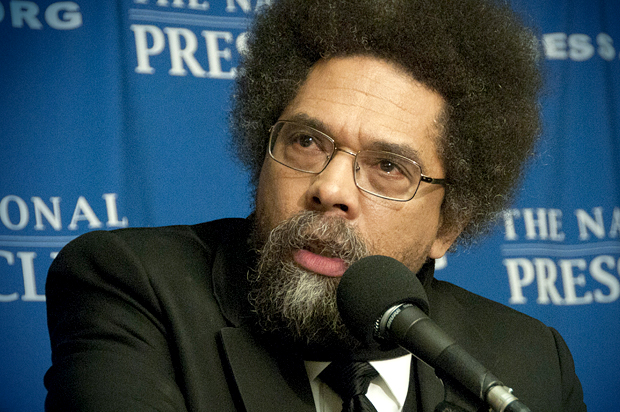By Steve Almond
"Who Is John Galt?" is a lurid pageant of right-wing propaganda—and proof of Rand's weirdly enduring influence.
September 12, 2014
Here’s what I think happened. I think Rush Limbaugh had a lousy
day at the office and drowned his sorrows in bad Mexican food —
something along the lines of three El Charrito’s Enchilada Grande
packs — and then I think Rush fell asleep on his sofa and had a beautiful dream.
In
this dream, all the most powerful and talented Americans finally get
fed up with big government and its bureaucratic parasites and follow a
hunky guy named John Galt to a gorgeous valley in Colorado, where
together they declare themselves on strike against the government. This
means they get to live in harmony and throw awesome Caucasian dinner
parties and invent miraculous technological devices and pay for
everything with shiny gold coins.
And because this is all
happening inside Rush Limbaugh’s mind — with its misty yearnings for
underage third-world prostitutes and endless Oxycontin — the production
values of this particular dream have the quality of an off-brand soap
opera.
It’s all pretty awesome. Weaselly government leaders meet
in back rooms filled with cigar smoke to plot new ways to steal money
from rich people and nationalize industry and force scientists to invent
torture devices so as to control the population. Then they swish brandy
around in snifters and blow smoke rings.
Meanwhile, back in
paradise, this hot babe named Dagny, who runs American’s only remaining
train company, crashes her plane and John Galt finds her and carries her
back to his pad where he doesn’t have sex with her — not just yet.
First, he’s got to introduce her to all his bad ass friends, like the
doctor who examines her with his killer new medical gizmo and says,
“It’s amazing what can be accomplished without red tape!” Or the mom who
explains that she’s home-schooling her kids because “I wouldn’t put
them in an educational system that doesn’t teach them to think.” That’s
maybe the coolest thing about this particular utopia: Everyone speaks in
Republican National Committee talking points.
Unfortunately,
Dagny has to leave paradise before she even gets to have sex with John
Galt, because the government has nationalized her train company and is
running it into the ground. Bummer. In fact, the entire country is
falling to pieces without men like Galt, who is both a brilliant
engineer and a professional hair model. But that serves America right
because, as Galt explains, “the powerful try to make us feel guilty for
our success.” And that is so totally not cool.
Alas, Dagny
leaves the valley and heads back to grubby old America and it’s just as
poorly lit and effed-up as you’d expect, though she does get to have sex
with John Galt (who comes to rescue her), an act of coitus that is
performed on her desk. This sort of eases the comedown of living in a
reeking dystopia.
Then
John Galt gives a big speech on TV during which he asks some tough
questions of the American people, who are mostly huddled outside pawn
shops staring at televisions through the security bars. “Have you
noticed that as everything in your world seems to decline, one thing
still grows?” he asks. Everyone kind of nods. “It is the power of your
rulers. None of their plans and directives have solved your problems or
made your life better. The only result has been the increased control
over you at the cost of your freedom.” He goes on to explain how
business leaders got tired of being called “greedy exploiters” and
decided to follow him. Why? Because they finally “recognized the honor
they deserved and rebelled against the guilt you wanted them to feel.”
It’s
not exactly “The Gettysburg Address,” but the media response is off the
charts. Sean Hannity appears on-screen, looking engorged with gravitas.
He loves the speech. Glenn Beck salutes Galt’s moxy. Ron Paul arises
from his Cycronic crypt to predict the End Times, which is sort of a
reflex at this point. The crowds outside the pawn shops start chanting
John Galt’s name. It’s a movement.
Naturally, government thugs
capture Galt and drag him to a secret lab where they strip off his shirt
and punish him using their special new Torture Machine, which involves a
lot of sparks. Galt looks a lot like Jesus Christ, if you can imagine
Christ with stubble and chinos. But then Dagny and her pals rescue Galt
and all the ubermenschen fly off together to their mountain hideaway
where, Rush is pretty sure, they eventually build a PGA-quality golf
course and hire Playboy Bunnies to wax your balls.
Except —
spoiler alert! — Rush wakes up before this last part can happen. Worse
yet, he has diarrhea. The beautiful thing is that even in the midst of
his diarrhea, Rush is able to get online and right there in his email
in-box is an invitation to the premiere of the new film, “Atlas Shrugged
III.”
And now El Rushbo realizes why his dream felt so gosh
darned familiar: because it’s the plot of the third and final part of
Ayn Rand’s 1957 potboiler, which will debut tomorrow, Sept. 12, mostly
in those precincts of the country where citizens still call the Civil
War the War of Northern Aggression.
If this were an actual movie
review I would, at this point, pretend to give a shit about the film’s
quality. But as anyone who sits through “Atlas Shrugged III” will tell
you, the filmmakers themselves don’t give a shit about the film’s
quality.
Back in 2011, when the first installment came out, most
reviewers agreed to regard it as a “major motion picture,” though it was
funded not by a studio but by an exercise machine mogul named John
Aglialoro. As a piece of art, and a form of entertainment, “Atlas
Shrugged I” flopped hard.
But if there’s one thing the
conservative movement of this country has proved, it’s that it can move
even the most imaginatively inert product. With the ardent promotional
support of Fox News and the Tea Party’s corporate arm, the film managed
to earn out in video. And thus we got a second “Atlas,” with an all-new
cast and even lower production values. This final chapter has an
exhausted, obligatory air. It’s like watching the final phases of a
botched plastic surgery.
The director — and co-writer — is a man
named James Manera, whose previous work includes a documentary about
music and an episode of the television show “Nash Bridges,” which he
directed in 1996. I think I’ve said enough about the movie.
The
larger curiosity here is Ayn Rand herself. It would be easy to write her
off as a demented Cold War hack no longer relevant to our cultural and
political discourse. But that would be a huge mistake.
Because Rand’s
slobbering conception of laissez-faire capitalism is not only alive and
well, it remains a galvanizing ideological force.
Consider the
young darling of conservative circles, former vice-presidential
candidate Paul Ryan. Ryan worships Rand. He once gave a speech
confessing that he went into public service because of her. He also
asked his staffers to read her novels, so they could learn about the
free market. During the 2012 campaign, Ryan did a good job of playing
down his devotion, because Rand was an atheist.
But her
fingerprints are all over his famous Budget Plan. To the “takers” in our
society — the aged and the sick — Ryan would provide rationed
healthcare. Federal budgets for education, transportation, energy and
veteran services would be slashed. The rich, meanwhile, would be handed
billions in tax cuts.
The whole idea is to do like John Galt says:
obliterate any restraints on personal greed. The Ryan Plan is a
document so enthusiastic in its fraudulence, so casual in its cruelty,
and so certain of its own virtue that it could only have been dreamed up
by a man born into money, educated by Ayn Rand, and given finishing
lessons in Congress.
For all the low-budget absurdity of this new
movie, the famous speech Rand penned for John Galt back in 1957 still
stands as the Rosetta Stone of modern conservatism. This country wasn’t
built by men who sought handouts! Sweep aside those parasites of
subsidized classrooms! On and on Galt yammers, forever propelled by
grievance and self-pity.
His vision of capitalism is a cartoon
that plays over and over again on Fox News: no poverty or environmental
ruin or lack of equal opportunity. Mercy is a mug’s game in this world, a
false impulse. The pursuit of wealth, by contrast, is a form of heroic
purity. If only bureaucrats would get out of the way, our intrepid
industrialists would beat a path to paradise and leave the moochers to
rot. Rand’s mission — now taken up by Ryan and company — is to present
capitalism not as an economic philosophy, but an impeccable moral
system.
The writer and critic Gore Vidal characterized the
philosophy of Ayn Rand as “nearly perfect in its immorality” and a
number of critics described “Atlas Shrugged” (the novel) as a narrative
driven by hate.
But my take on the book, as well as the movies it
spawned, is just the opposite. For all the contempt that Rand (and Galt
and Ryan) aim at the government, the predominant emotion they express is
one of unbridled self-love. Rand herself was a kind of golem of
narcissistic excess, a woman with delusions of grandeur. And she tapped
into the crushing insecurity of the wealthy, the manner in which they
must constantly remind themselves how much they deserve their privilege.
What animates these people and drives their chintzy propaganda isn’t rage at all, but a kind of annihilating self-hatred.
Rush is going to love “Atlas Shrugged III.”
It’s not just a movie to him. It’s a dream come true.
 Cornel West (Credit: Albert H. Teich via Shutterstock)
Cornel West (Credit: Albert H. Teich via Shutterstock)








